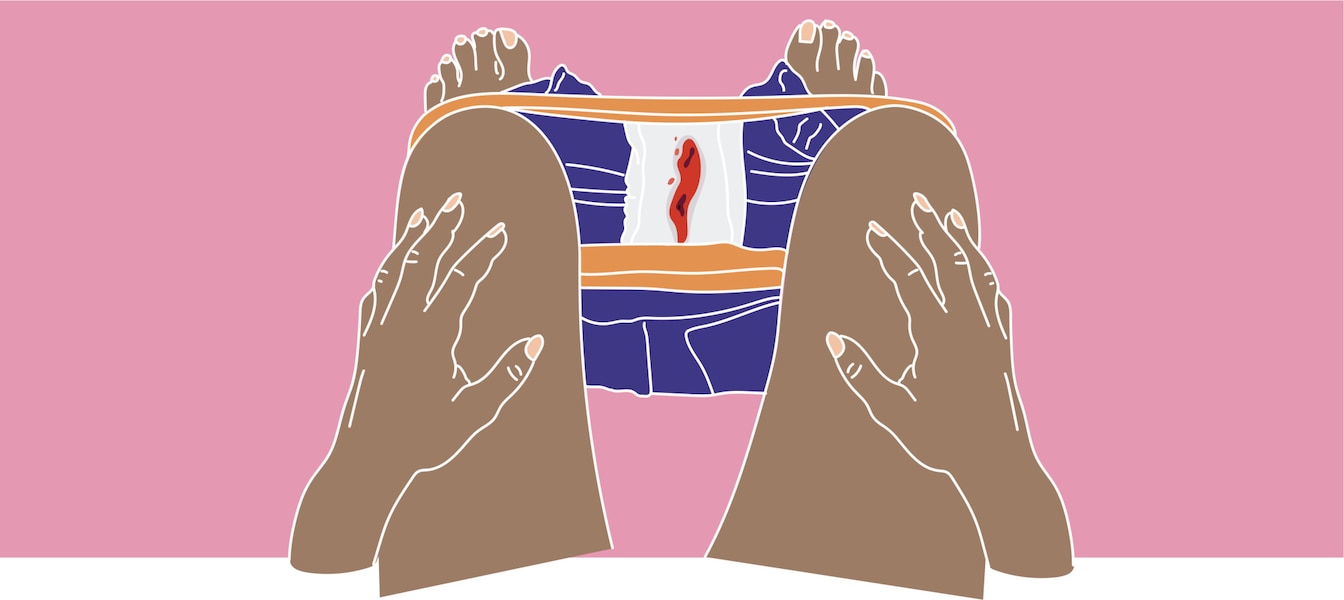What happens after having a miscarriage?

Miscarriage can be a hard topic to talk about, but sometimes talking is the best way to come to terms with it and begin healing from the whole experience. Let’s take a deeper dive into what happens to your body after a miscarriage, as well as ways to cope with your own feelings.
A miscarriage is when an embryo or fetus doesn’t survive in the uterus during the first 23 weeks of pregnancy. [1] Miscarriages are more common than most people think, with 1 in 4 pregnancies being affected. So just because they don't come up in conversation often, it doesn’t mean they’re a rare occurrence.
Talking about miscarriages can be tricky given that they often bring about emotions of sadness and grief. However, the silence surrounding them is slowly being broken with many women coming together in solidarity to share their experiences. This movement has helped many realise that they are not alone in this.
Miscarriages are also a process; your body will undoubtedly experience a lot of physical and emotional stress both during but also after it. So we’ll explore how it changes your body in terms of periods, future pregnancies and emotions.
What is miscarriage bleeding and discharge?
The most common sign of a miscarriage is vaginal bleeding during pregnancy. The heaviness of this bleeding can vary from person to person; sometimes it can be heavy bleeding with clots while other times it could just be some light spotting or brown discharge. This bleeding can also last for up to 2 weeks. Another sign of miscarriage is abdominal pains. This happens as the womb muscles contract to push out any pregnancy tissue as clots through the vagina.
Regardless of the amount of blood you experience, if you do bleed while you are pregnant, then it is strongly recommended that you contact your doctor as soon as possible. Though not all bleeding during a pregnancy is an indication of a miscarriage (implantation bleeding is normal during the early stages of pregnancy), it’s always best to get a medical opinion if you are worried.
What will my first period be like after a miscarriage?
After experiencing a miscarriage, you may wonder how your body will react to it and if there will be any lasting effects. Miscarriages rarely change your body in a permanent way, but you will need to give it time to adjust and get back to its usual rhythm.
After having a miscarriage, you can expect your periods to settle back into your regular pattern after about 4 to 6 weeks – though this number will of course vary from person to person and it’s also common for it to take up to several months. [2]
So if you are worried and getting impatient about when your periods will return, try your best not to overthink it and instead give yourself time to rest, whilst your body recovers and heals.
Getting pregnant after a miscarriage
Some people might jump straight back into trying to get pregnant after going through a miscarriage, while others will need to take some time to process it, and some may even reconsider whether they want children at all. However you react to your own experience, it’s important to recognise that there’s no right or wrong way to do so – we all cope differently.
If you do want to start trying again, it’s usually recommended that you wait until the symptoms of your miscarriage have passed to help prevent infection. [3] You may also want to wait until you get your period once more, so that you’re able to calculate dates for your pregnancy more accurately.
And remember you can always check in with your doctor for advice about getting pregnant again, but most importantly it’s up to you to decide when you feel ready.
Coping with your feelings after a miscarriage
The aftermath of a miscarriage can be felt immediately after or it could take some time for these feelings to settle in – everyone grieves in different ways. However you react, it’s essential to understand that you haven’t done anything wrong; a miscarriage is not a reflection of your personal strength or ability.
Talking about your experience may sound scary, but expressing your thoughts and emotions can actually help you with the healing process. And even if talking to people about your miscarriage may feel uncomfortable at first, you might be surprised at how many other women understand what you've gone through and are willing to provide their support.
There are also many charities and associations specifically dedicated to giving care and guidance when it comes to miscarriage. So if you ever need some comforting advice, there's also lots of people aside from your friends and family to reach out to.
Miscarriages are undoubtedly a hard topic to discuss, however hiding them only perpetuates the taboo and prevents many people from seeking out support. Remember that you are not alone and that it's ok to speak out when you feel prepared to.
To continue the discussion on pregnancy, check out our pages on fertility treatment and being child-free by choice.
Medical disclaimer
The medical information in this article is provided as an information resource only, and is not to be used or relied on for any diagnostic or treatment purposes. Please consult your doctor for guidance about a specific medical condition.
[References]
[1] https://www.nhs.uk/conditions/miscarriage/
[2] https://www.betterhealth.vic.gov.au/health/HealthyLiving/miscarriage#after-a-miscarriage
[3] https://www.miscarriageassociation.org.uk/information/worried-about-pregnancy-loss/trying-again/
